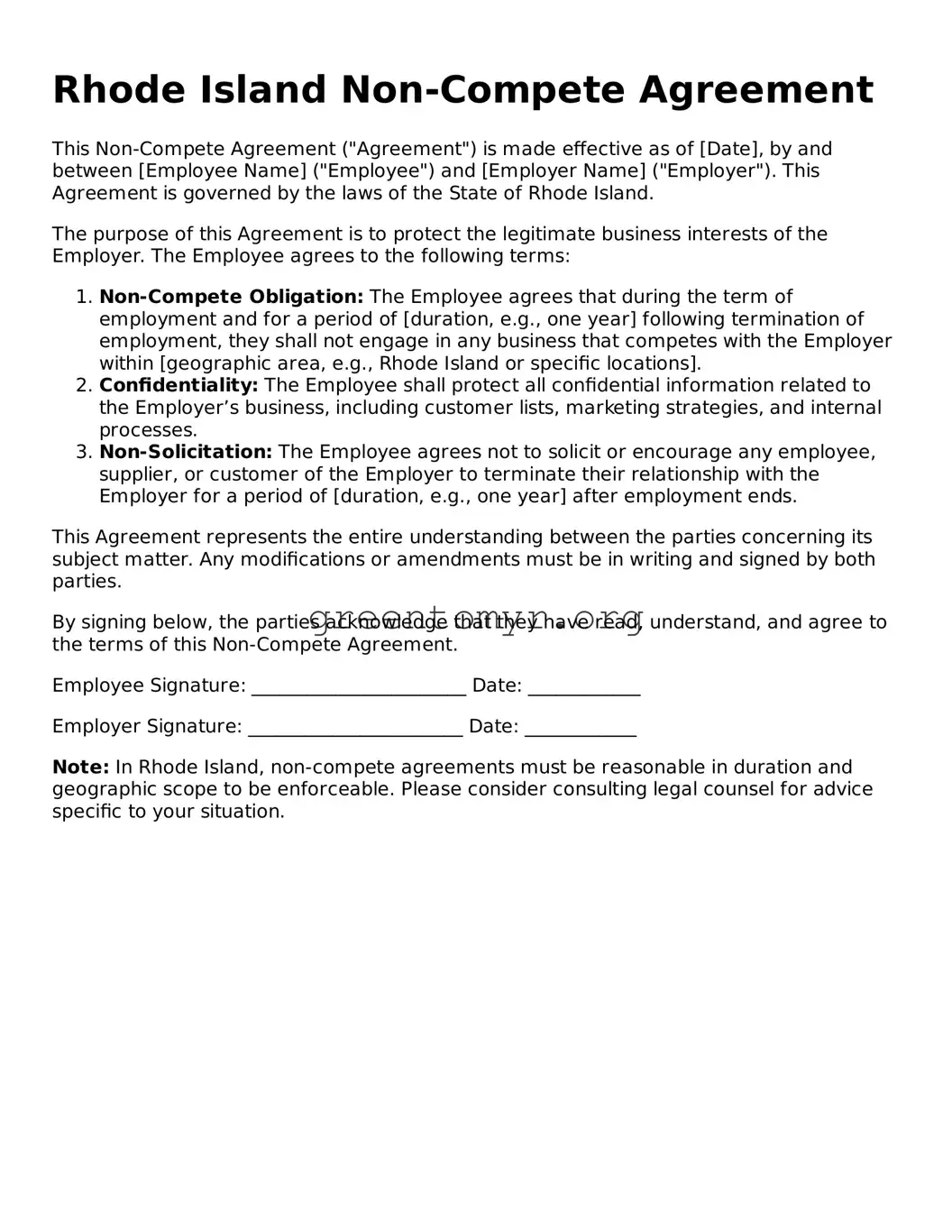Rhode Island Non-Compete Agreement
This Non-Compete Agreement ("Agreement") is made effective as of [Date], by and between [Employee Name] ("Employee") and [Employer Name] ("Employer"). This Agreement is governed by the laws of the State of Rhode Island.
The purpose of this Agreement is to protect the legitimate business interests of the Employer. The Employee agrees to the following terms:
- Non-Compete Obligation: The Employee agrees that during the term of employment and for a period of [duration, e.g., one year] following termination of employment, they shall not engage in any business that competes with the Employer within [geographic area, e.g., Rhode Island or specific locations].
- Confidentiality: The Employee shall protect all confidential information related to the Employer’s business, including customer lists, marketing strategies, and internal processes.
- Non-Solicitation: The Employee agrees not to solicit or encourage any employee, supplier, or customer of the Employer to terminate their relationship with the Employer for a period of [duration, e.g., one year] after employment ends.
This Agreement represents the entire understanding between the parties concerning its subject matter. Any modifications or amendments must be in writing and signed by both parties.
By signing below, the parties acknowledge that they have read, understand, and agree to the terms of this Non-Compete Agreement.
Employee Signature: _______________________ Date: ____________
Employer Signature: _______________________ Date: ____________
Note: In Rhode Island, non-compete agreements must be reasonable in duration and geographic scope to be enforceable. Please consider consulting legal counsel for advice specific to your situation.
